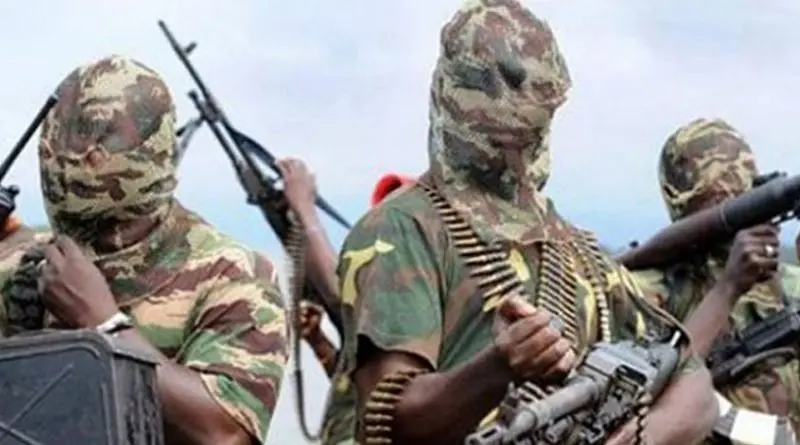Boko Haram terrorists in Nigeria killed 20 young men in one of a series of early June attacks in the mountainous Shiroro communities of Niger State.
Witnesses in the town of Bassa said Boko Haram fighters attacked in broad daylight on June 6, shot the victims at close range and beheaded 10 of them. Residents were forced to hold the severed heads as the terrorists took pictures and made video recordings.
“They told us that anybody who refused to be recruited into their fold would be given a similar treatment,” an anonymous witness told Nigeria’s Premium Times online newspaper. “They said they used the 10 beheaded youths as an example. They said they had warned us that everybody should vacate the community but that we refused. It’s either we join them, or we leave the community.”
Boko Haram also torched houses and killed domestic animals in four other Shiroro villages during the two-day terror campaign. Analysts say the terrorists have gradually regrouped in central Shiroro after being driven from northeast Nigeria.
Retired Nigerian Navy Capt. Umar Bakori said the group likely is attracted to Shiroro’s strategic location, fertile soil, and abundance of gold and copper.
“About 90 percent of Shiroro County’s inhabitants are farmers,” Bakori told TruthNigeria.com. “If Boko Haram controls Shiroro, they’ll have access to vast lands filled with mineral deposits and agricultural land.”
This would provide them with more than enough revenue and resources to sustain their terrorism, Bakori added.
In mid-April, Boko Haram was blamed for killing and beheading nine people during ambushes in at least four Shiroro farming communities. An unknown number of Nigerian Soldiers died days earlier after a military vehicle ran over an improvised explosive device. The attacks drove Nigerian military forces from the area. Hundreds of residents also left.
“We are leaving our communities now and there are insufficient motorcycles and vehicles to take us out as quickly as possible,” Shiroro resident Yahuza Allawa told Nigeria’s Punch newspaper. “We are afraid. We left our belongings behind because we could not carry so many things. So many other people have left already.”
Emmanuel Umar, a former commissioner of internal security in Niger State, said Boko Haram likely seeks to replicate the situation it once exploited in northeast Nigeria’s rugged Sambisa Forest. The terror group was known to bring kidnapped girls to the forest and launch attacks against security forces from it before disappearing into its dense cover.
“They want to create a haven where they can plan and launch attacks without fear of being caught,” Umar told TruthNigeria.com.
Sambisa Forest was Boko Haram’s main base until it was driven out by its rival, the Islamic State West Africa Province
(ISWAP) in 2021.
Boko Haram had maintained a presence in Shiroro since 2014 but recently increased its operations there.
“For several years, they lay low, regrouping and re-strategizing,” Bakori told TruthNigeria.com. “Now, they’re trying to establish a stronghold in Shiroro.”
Bakori said the Nigerian military is unable to properly defend Shiroro because it lacks manpower and equipment. He suggested that men and women with the Vigilant Group of Nigeria (VGN) could complement military activities in Shiroro. Journalist Mohammed Anka credited the VGN with helping stem recent violence.
Boko Haram’s activities in Niger State are not confined to Shiroro.
The group is blamed for an attack on the village of Kuchi, part of the Munya community, where eight people were killed and at least 160 kidnapped in late May.
Aminu Najume, the local government chairman, said about 300 gunmen arrived on motorbikes and stayed for several hours.
“They made a fire to curb the cold because it was raining throughout that day,” Najume told CNN. “They cooked and made tea; they made Indomie (instant noodles) and spaghetti.”
Boko Haram controlled 42 communities in Munya and Shiroro as of October 2023, according to Sen. Musa Sani, who represents the Niger East district of Niger State.
“Boko Haram terrorists have mounted their flags in many of the villages they have captured, such as Kaure, Alawa and Magami,” Sani said in a report by Nigerian newspaper Business Day. “Inhabitants of these war-torn parts of the state have been abandoned and left to their fate, compelling them to wallow in perpetual agony and abject misery.”

